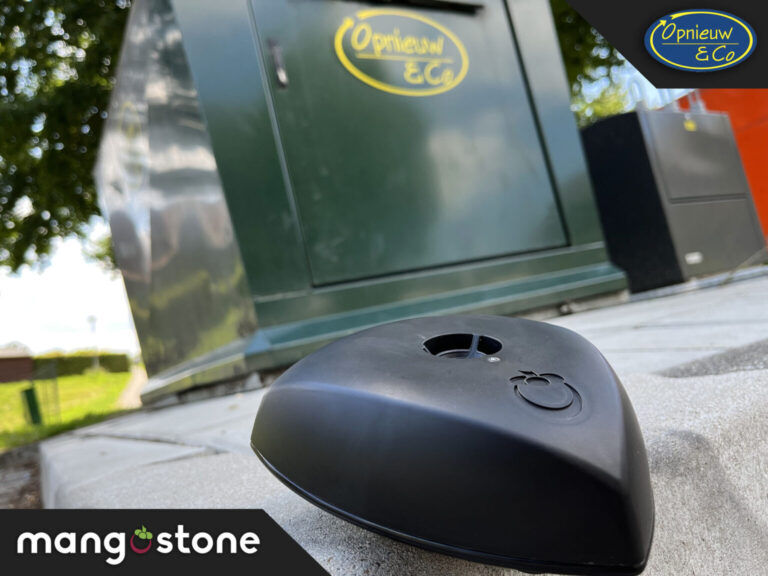Mert Ozturk, writing his master thesis in Supply Chain Management at Erasmus University in Rotterdam, started working with Climpex, a textile collection company, to help them optimize their processes. The thesis project, which started in 2019, led to the founding Mangostone in February 2020, with Climpex being the first paying customer.
How did that happen?
Climpex had multiple containers on the streets where people could discard their unwanted garments. The challenge they faced was that they did not know what and how much there was in the containers, making it hard to decide which roads to take.
Textile is quite difficult to predict compared to general waste streams. We saw there was a lot of room for optimization. For example, there were times where the containers would be only 10-12% full, and they would need to drive 100 km for that.
As a solution, Mangostone thought of a “centre that was better in terms of technology, but also cheaper”. That’s when they knew they had to create a whole cloud software package that works on centre data or predictions (using advanced preventive algorithms) to better optimize the processes.

The focus of Mangostone
The target market of Mangostone is defined by the textile collectors (both commercial and charities) that sell the clothes to textile sorters. After the sorting, everything gets in the hands of textile processors. The clothes end up either in the stores that resell the garments, either on the market of 2nd or 3rd world countries or in companies that have better recycling techniques and can create new garments out of the old ones.
When they started working with Climpex, most of the company’s operations were defined by driving through different locations nationally and collecting the garments from people’s houses. The remaining was defined by the containers, which were only a couple of hundreds. Now, that number has been multiplied many times with the help of Mangostone. Their complex logistical operation was now much cheaper and easier to control.
Looking at the competition, Mangostone is not the only IT company that provides this type of product. They have a few big competitors, yet they focus mainly on the general city waste collection and not textiles. Their direct competitor in textiles does not use advanced software for waste collection, leaving room for Mangostone to educate them.
In terms of funding, Mangostone “pulled out a smart move” since they had the right set of skills within the team. They developed the software themselves and, the chip shortage gave them a new insight: “80% could be predicted without investing in the hardware”. That being said, they sold the software based on a subscription business model allowing them to cover the expenses and reinvest in the development process without needing external funding.
We did work for 2 years for free, that’s basically the main investment: our time.
The impact of YES!Delft
Initially, Mangostone was not sure they needed help from YES!Delft, or at least they did not know they needed it. However, once they spoke with the start-ups that are now scale-ups, they learnt about their experiences and saw how enthusiastic they were about working with YES!Delft.
From week 1 or 2 we saw that it was worth the money. We learnt a lot about soft skills- both personal and team development, how to be a bit abstract with the ideas and actually address the elephant in the room. Also, the lunches were great.
Mangostone also benefited from the network of YES!Delft, their advisors, and working with other start-ups that were eager to win. Since they were one of the only start-ups with paying customers, they shared their knowledge with the others and got valuable information in exchange too.
Mangostone kept in touch with their mentor from YES!Delft, and have been advised to stick to the niche they are in for at least 1-2 years before expanding towards another direction. For now, they selected some target markets for the extension, which are The Netherlands, Germany, the United Kingdom, and potentially Denmark. Their goal is to get more customers and build a name and a well-rounded system for the collection of textiles which can facilitate the sorting processes.
Your dream can become a reality too. As long as you want to make a change, don’t miss the opportunity to boost your start-up by joining the YES!Delft Validation Lab or Accelerator Program. However, if working for a start-up resonates more with your ambition, we got you! Check out the vacancies on our YES!Talents page!




